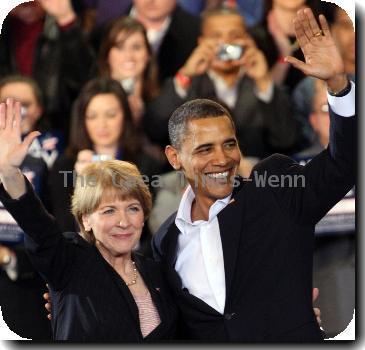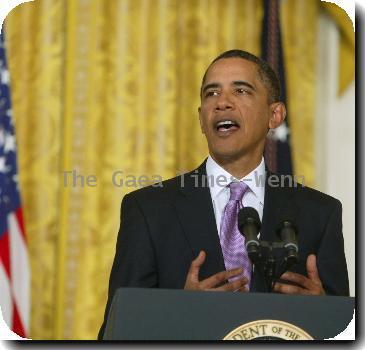Spain predicts thaw in US, EU relations with Cuba following release of dozens of dissidents
By Ciaran Giles, APWednesday, July 21, 2010
Spain predicts thaw in US and EU ties with Cuba
MADRID — Spain’s foreign minister predicted Wednesday that Cuba’s release of dozens of political prisoners could eventually lead to a thaw in U.S. relations and the lifting of a decades-old embargo against the Communist-run island.
Speaking in Parliament, Miguel Angel Moratinos said the freeing of some 52 Cuban prisoners would prompt a shift in European Union policy toward Cuba “and it will have political consequences in U.S. relations with Cuba, (such as) the lifting of the embargo.”
A spokeswoman for the U.S. embassy in Madrid said, while the U.S. welcomed the release of the Cuban political inmates, it was too early to say whether that would have any effect on the embargo. And officials from France and Germany didn’t share the Moratinos’ optimism that the release of the 52 would trigger an EU policy shift.
President Barack Obama once suggested it was time for a new beginning with Cuba, but his administration wants to see the island embrace more political or social reforms — and it’s unknown if the agreement on political prisoners is enough.
The dissidents, who had been imprisoned since 2003, have spoken of the horrid, rat-infested conditions they endured in the Cuban prisons. Twelve have arrived in Spain so far, along with dozens of relatives, and more are expected.
Moratinos has said his European Union counterparts had conditioned any change in EU policy toward Cuba on getting the political prisoners released and he now expects the 27-nation bloc to end its “common position” on Cuba. That policy, which dates from 1996, calls for advances in human rights and democracy before relations with the island can be normalized.
But Maja Kocijancic, spokeswoman for EU foreign affairs chief Catherine Ashton, said it was too early to say if the bloc is ready to shift direction on Cuba. She said all countries needed to be back any move and it was not clear if they all share Spain’s enthusiasm.
“We will have a better feeling on Monday” when foreign ministers may talk briefly about the prisoners’ release, she said. But no decision is likely until September.
An official with Germany’s Foreign Office said it “welcomes the current development” but added that “the EU countries have always stressed that the overall human rights situation in Cuba has to improve.” The official spoke on condition of anonymity in keeping with policy.
A French diplomat said Wednesday that the releases are a positive first step, but that the EU wants Cuba to free all its political prisoners. The diplomat was not authorized to be publicly named according to Foreign Ministry policy.
On Monday, the released Cuban prisoners in Spain said they opposed any change in EU policy toward the island.
“The Cuban government has not taken any steps that show a clear decision to advance toward democratizing our country,” they said in a statement. “Our exit to Spain should not be considered a gesture of goodwill, but rather a desperate move by the regime in its urgent search for credit of any sort.”
The Cuban government has long maintained that none of them is a prisoner of conscience. It insists they are mercenaries paid by Washington and supported by anti-Castro exiles in Miami, whose only goal was to discredit the Cuban government. Many of the Web sites the journalists had worked for were maintained by exiles outside Cuba.
Spain has told the former prisoners they will be given work and residency permits within a few months. It has advised them not to seek asylum status, saying such a designation would bar them from making political statements and would make it impossible for them to return to Cuba for visits.
The arriving Cubans were held for days in a very modest hotel with no air conditioning and shared bathrooms for men and women in a remote industrial zone of Madrid.
But the government started moving them into apartments outside of the capital this week because Madrid is considered a very expensive place for arriving immigrants to build new lives. Plans were also set to house the latest arrivals in a more upscale Madrid hotel until they are resettled elsewhere.
While some of the Cubans initially complained about their accommodations in Madrid, they said conditions were much better than the jails they were held in, and those who have been moved out of the capital said they were satisfied with the government’s effort.
Omar Ruiz, a journalist, was sent with his wife and young son to a studio apartment in the southern city of Malaga in a building occupied mostly by African immigrants. Everyone in the building eats for free in a communal dining room, and the building is about a 20-minute walk from a beach on the Mediterranean
“I don’t want to complain about the conditions, there may be others who think they could have been better,” Ruiz said. “The main thing is that they helped me leave jail and get to a free country with my family, where I can think whatever I want to think. You have to recognize that, and I am very thankful.”
____
Contributing to this report: Associated Press Writers Alan Clendenning and Jorge Sainz in Madrid, Aoife White in Brussels, Juergen Baetz in Berlin, and Angela Charlton in Paris.
Tags: Barack Obama, Caribbean, Cuba, Europe, Germany, Latin America And Caribbean, Madrid, North America, Political Imprisonment, Political Issues, Spain, United States, Western Europe




